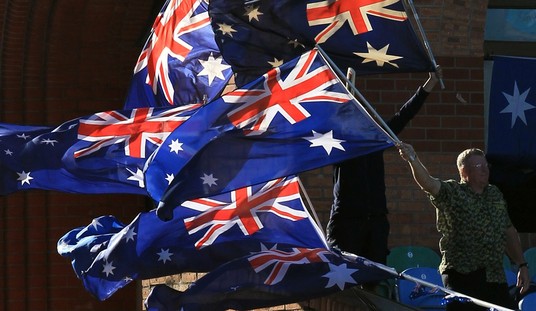
In “The World the Great War Swept Away,” at the Wall Street Journal, Peggy Noonan writes:
Informed opinion had it that the disruption of international credit that would follow war “would either deter its outbreak or bring it speedily to an end.” And the business of Europe was business. Industrial output was expanding; there were new goods and manufacturing opportunities, such as the production and sale of internal-combustion machines. There were new profit centers, new sources of raw materials, including precious metals. Populations were increasing. Steamships and railways were revolutionizing transport. Capital was circulating. “Belgium, one of the smallest countries in Europe, had in 1914 the sixth largest economy in the world,” thanks to early industrialization, new banking and trading methods, and industrial innovators.
Europe was increasingly international—independent nations were dealing and trading with each other. “Common Christianity—and Europe was overwhelmingly Christian by profession in 1914 and strongly Christian in observance also”—found frequent expression in philosophical and political pursuits, including the well-being of labor. Movements to restrict working hours and forbid the employment of children were going forward. European governments were spurred by self-protectiveness: Liberalized labor laws were a way to respond to and attempt to contain the power and appeal of Marxism.
“Europe’s educated classes held much of its culture in common.” They knew Mozart and Beethoven and grand opera. ” Tolstoy was a European figure,” as were Victor Hugo, Balzac, Zola, Dickens, Shakespeare, Goethe and Dante. High-school students in England were taught French, and French students German. Study of the classics remained universal, scholars from all the countries of Europe knew Homer, Thucydides, Caesar and Livy. All shared the foundational classics of philosophy, Aristotle and Plato.
Europe as a cultural entity was coherent and becoming more so. By the beginning of the 20th century tourism “had become a middle-class pleasure” because of railways and the hotel industry that followed.
It’s a beautifully-written piece; definitely read the whole thing. I wonder though, if the subtext of Noonan’s article is also — intentionally or unintentionally — about America at the start of the 21st century, the ongoing war on the American economy, and the dislocations caused by the “fundamental transformations” of Mr. Obama, our own would-be reverse Clausewitz, who views politics as warfare by other means.
In both cases, both regions were far from perfect; America still has pockets of racism on both sides of the aisle, Europe has always historically had plenty of deeply engrained Antisemitism, but it wasn’t until the “Progressive” Bearded God Killers of the 19th century (as historian Martin Marty dubbed Freud, Marx, Darwin and Nietzsche) that Europeans began to use their boxcars to transport people. (I wonder if one reason why leftwing critics rushed to condemn David Lean’s adaptation of Dr. Zhivago was because it depicted a mass exodus of displaced Soviet refugees by boxcar — and all of the equivalent symbolism contained in those scenes?) And in both Europe in the early 20th century and America today, the seeds of upheaval were planted in the previous century; it was only a matter of time before the flashpoint was reached, to badly mix metaphors.
It’s not a perfect analogy — America today is infinitely preferable to Europe in the first decade of the 20th century; but perhaps in our boredom, the American public needed new bloodsports to entertain themselves; which leads to Noonan’s conclusion:
Western Europe hadn’t had a big and costly ground war since 1871. Maybe they forgot what war was. Surely some would have liked the drama and excitement—the interruption in normality, the break in the boring dailiness of life. Or the air of possibility war brings—of valor, for instance, and shown courage. Camaraderie, too, and a sense of romantic engagement with history. A sense of something to live for—victory.
Once a few years ago a reporter who had covered wars talked about this with a brilliant, accomplished, famously leftist editor in New York. At the end of a conversation on a recent conflict the reporter said, quizzically: “Why is there so much war? Why do we do that?”
“Because something’s wrong with us,” the editor replied.
I told him it was the best definition of original sin I’d ever heard.
In 2004, Obama infamously told a Chicago Sun-Times reporter that his definition of sin was “Being out of alignment with my values.”
What other reason does a community organizer in chief need to declare war on the electorate?
Related: Europe as “The Future That Doesn’t Work.”









Join the conversation as a VIP Member